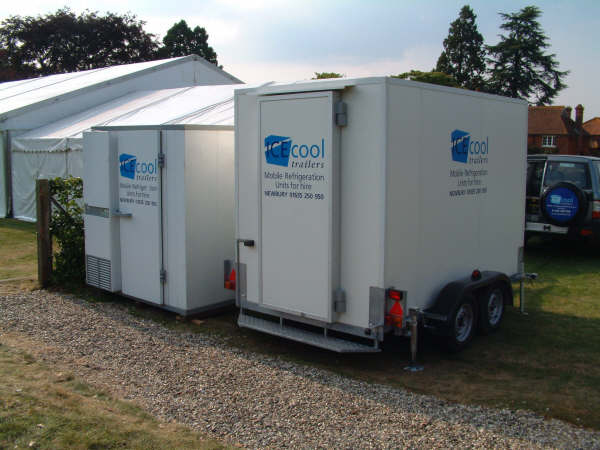CO2 Refrigerants, a Green Alternative

As the permanent and temporary refrigeration industries seek to replace refrigerants that are not environmentally friendly, the options right now are few and far between. However, there is promise with a new line of refrigerants based on carbon dioxide (CO2). CO2-based refrigerants are extremely friendly to the environment while also being reasonably productive compared to more traditional products. Some big-name companies that most of us would probably recognise are already using these refrigerants.
Take Sainsbury's as an example. That company announced a pilot programme this past spring to use a refrigerant derived from waste sugar beet in its refrigeration systems at the Portishead store. Sainsbury's now uses some form of the refrigerant, known as eCO2, at 200 of its stores. Furthermore, a recent survey from Carrier Commercial Refrigeration suggests as many as 65% of supermarkets in Europe have started to use e CO2 or other non-HFC refrigerants. We would expect to see a similar upward trend among companies that manufacture and service portable refrigeration solutions as well.
Benefits of CO2 Refrigerants
The main advantage of CO2 refrigerants is the obvious green qualities. A refrigerant made of waste sugar beet, for example, is nearly 4,000 times less damaging to the environment than HFCs. Accidentally releasing eCO2 into the environment would be virtually harmless.
Another advantage of eCO2 is its low moisture content. This is critical in the refrigeration industry. Under certain conditions and temperatures, moisture in refrigerants can freeze. Not only does this disrupt the cycle of extracting heat and dispersing it outside of the system, it can severely damage refrigeration equipment as well. This is why humidity control is such an important part of both permanent and temporary refrigeration.
{module_webapps,1841,i,4654081}
On the downside, there is a risk of corrosion when using CO2-based refrigerants. That was one of the concerns when Sainsbury's began its pilot programme. Nevertheless, the manufacture of the company's sugar beet refrigerant seems to have sufficiently addressed the corrosion issue.
Looking to the Future
A report by The Guardian suggests that the capacity already exist to create an ample supply of eCO2 through sugar beet fermentation, should the industry want it. Now it is a matter of convincing equipment manufacturers to invest in the cost of producing new equipment. Existing equipment would also have to be converted in order to use eCO2.
What does this mean for the temporary refrigeration industry? For the time being, it's mainly just wait and see for us. Companies such as Icecool Trailers already have a large fleet of equipment now in service utilising traditional refrigerants. Eventual replacement of the equipment will entail looking at all of the possible options prior to purchasing the refrigerated trailers and cold rooms that best meet the needs of our customers.
{module_webapps,1841,i,4654083}
We can see the day when a CO2 refrigerant made from sugar beet becomes the norm. Between now and then, stakeholders within the industry need only figure out a way to make it as cost-effective as possible. All CO2-based refrigerants have potential if the cost question can be answered.
In the meantime, Icecool Trailers will continue to offer refrigerated trailers, freezers, and walk-in cold rooms to our customers throughout England and Wales. Not only do we service the Greater London area, we also serve customers in Buckinghamshire, Warwickshire, Oxfordshire, Surrey, and beyond.
Sources:
1.The Guardian – http://www.theguardian.com/sustainable-business/2015/mar/04/the-natural-refrigerant-set-to-reduce-supermarket-energy-use
Archive
Got questions? Call 01635 250 950 or send us a message